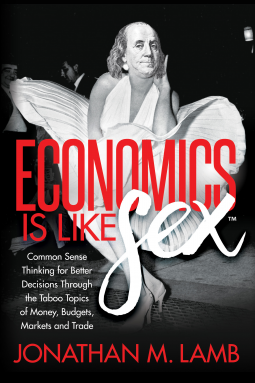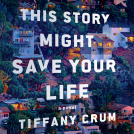
Economics is Like Sex
Common Sense Thinking for Better Decisions Through the Taboo Topics of Money, Budgets, Markets and Trade
by Jonathan M. Lamb
This title was previously available on NetGalley and is now archived.
Send NetGalley books directly to your Kindle or Kindle app
1
To read on a Kindle or Kindle app, please add kindle@netgalley.com as an approved email address to receive files in your Amazon account. Click here for step-by-step instructions.
2
Also find your Kindle email address within your Amazon account, and enter it here.
Pub Date Apr 24 2018 | Archive Date Jun 15 2018
Darcie Rowan PR | Morgan James Publishing
Talking about this book? Use #EconomicsIsLikeSex #NetGalley. More hashtag tips!
Description
Shying away from open discussions about money, budgets, markets, and trade has resulted in many misconceptions. Economics is all around us, and with a little common sense understanding of economic principals, Jonathan M. Lamb changes the way people view the world. Economics is Like Sex advocates that economics isn’t a boring subject filled with charts and theories cooked up by some dead guys who lived centuries ago. Economics is about decisions. Decisions that relate to money, life, love, and happiness. Economics is not just for government and business, but is a way of everyday life, and some very simple economic thinking can make life just a little bit less complicated when it comes to money.
Money can’t buy love or happiness, but Jonathan Lamb opens the taboo topic to provide a common sense understanding of how basic, easy, common sense economic principals can change the way people view the world.
Advance Praise
If anyone had to limit his lifetime study of economics to one book, Lamb's effort would be a good choice…. Lamb builds on a tradition going back to Henry Hazlitt's Economics in One Lesson, explaining that economics isn't the dry calculus of the balance sheet. In this lively book you begin to realize we make economic choices all the time. The world would be a better place if everyone, including our political leaders, read this book—especially our political leaders.
--William “Bill” Styring III, Economist and former Senior Fellow, Hudson Institute
Marketing Plan
Marketing Budget: $30,000; National publicity campaign; Radio Satellite Tour; Book Signings; Speaking Engagements; Launch Party; Local Indiana Media Tour; Local Indiana Library Tour; advertising and co-op budgets.
Available Editions
| EDITION | Other Format |
| ISBN | 9781683507222 |
| PRICE | $19.95 (USD) |
| PAGES | 232 |
Links
Average rating from 3 members
Featured Reviews
 Cristie U, Book Trade Professional
Cristie U, Book Trade Professional
I requested this book thinking it would be another economic book that showcased budgeting tips and practical advice. This book is so much more than that. The author explains how the smallest daily decisions that individuals make can have far-reaching economic impacts on our economy. Every person should read this, as it really lays out how far-reaching those minescule financial decisions that we make in the short term impacts our Country’s economy. The theory is an old one, but one that is not frequently discussed in our current environment where most people are not thinking long term when going about their daily financial spending, whether making what can be viewed as major or minor decisions. I really left reading this book feeling as though I need to start doing a better job with thinking before spending money, as I had no idea how much of an impact I have on the economy as a whole.






